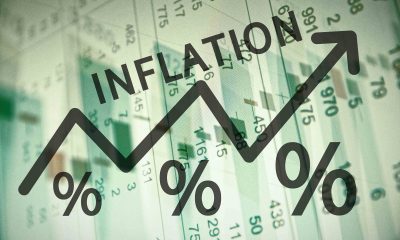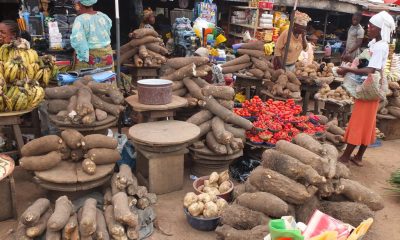Business
We’ve reduced diesel price to bring down inflation – Dangote

We’ve reduced diesel price to bring down inflation – Dangote
President of Dangote Group, Alhaji Aliko Dangote, has said with the cost of diesel from his company, Dangote Refinery, dropping to N1,200 from N1,650, inflation rate in Nigeria will drop.
Nigeria’s annual inflation rate rose to 31.70 per cent in February from 29.90 per cent in January, according to the last report on this issue by the National Bureau of Statistics (NBS).
Dangote spoke on Wednesday with journalists after paying an Eid-el-Fitr visit to President Bola Ahmed Tinubu in his Lagos home.
He said the Dangote Refinery had been selling diesel at N1,200 per litre as against the market price of N1,650 – N1,700.
He also noted the improvement in the naira to dollar exchange rate was already having a positive impact, with the price of locally-produced goods dropping as businesses paid less for diesel.
Dangote said, “I believe that we are on the right track. Nigerians have been patient and I also believe that a lot of goodies will now come through.
“There’s quite a lot of improvement because if you look at it, one of the major issues that we’ve had was the Naira devaluation that had gone very aggressively up to about N1,900.
“But right now, we’re back to almost N1,250 and N1,300, which is a good reprieve.
“You can see quite a lot of things went up. For example, something that we produce locally like flour – people charged more. Why? Because they were paying very high diesel prices.
“What we did, for example, in our refinery, is to sell diesel at about N1,200 as against N1,650 and I’m sure as we go along, things will continue to improve quite a lot.
“It’s a lot of impact. The price for a litre of diesel has been cut by almost one-third to N1,200.
“Even though the crude prices are going up, I believe people will not get it much higher than what it is today at N1,200.
“It might go a little bit lower, but that can help quite a lot because if you were transporting locally-produced goods, such as rice and other stuff at N1,650, and now you are paying one-third of that amount at N1,200, it’s a lot of difference.
“That can help to bring inflation down. And I’m sure when the inflation figures are out for the next month, there’ll be quite a lot of improvement in the rate.
“So, one step at a time. And I’m sure the government is working round the clock to make sure that things get much better. It’s in the interest of everybody.”
Aviation
FAAN begins sale of e-tags at airports

FAAN begins sale of e-tags at airports
The Federal Airport Authority of Nigeria (FAAN) on Friday commenced the sale of electronic tags (e-tags) at airports.
The initiative, it said in a statement, was in line with the presidential directive that mandating the use of e-tags for accessing the nation’s federal airports.
“Following the presidential directive that all citizens are mandated to pay for e-tags at all the 24 federal airports across the country, we wish to inform the general public that the e-tags are available for sale from Friday, 17th May, 2024 at the following locations,” FAAN said.
“Lagos: Murtala Muhammed International Airport Lagos, Terminal 1, 5th Floor) Office of HOD Commercial. Contact: 08033713796 or 08023546030.
“Abuja: Nnamdi Azikiwe International Airport, HOD Commercial Office (General Aviation Terminal) Contact: 08034633527 or 08137561615.”
FAAN however said there would be an option to pay in cash at the access gates for motorists without e-tags.
On May 14, Minister of Aviation and Aerospace Development, Festus Keyamo, announced that everyone, including the President and Vice President, would pay tolls at the airports.
Keyamo said the government was losing over 82 per cent of the revenue it should have earned from the access fee.
Business
Your pension funds safe, won’t be accessed illegally, FG tells workers
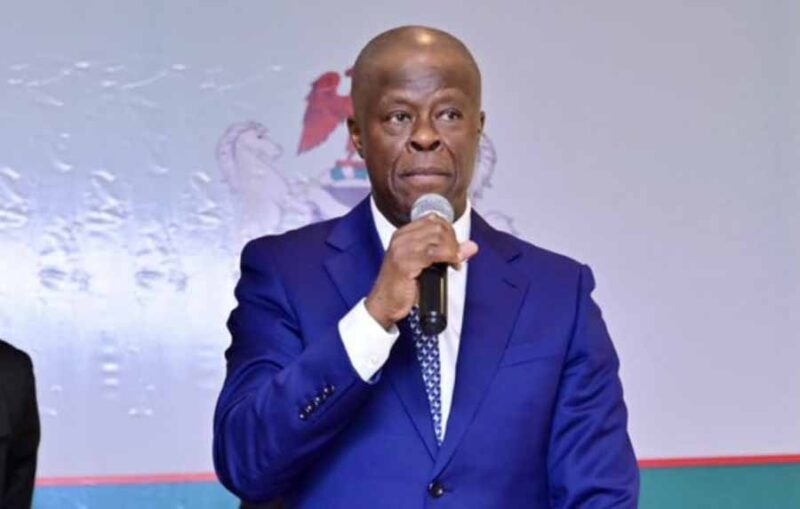
Your pension funds safe, won’t be accessed illegally, FG tells workers
Minister of Finance and Coordinating Minister of the Economy, Mr. Wale Edun, says the Federal Government has no plans of illegally accessing the N20 trillion pension funds for infrastructure development.
He said noone should entertain any fear over the safety of the contributions of workers that make up the pension funds.
Edun had earlier said the spoken on a move to use the pension funds as part of the government’s efforts to bridge Nigeria’s estimated 20 million housing deficit, and provide massive housing and mortgage loans at 12 per cent interest rates, with 25-year repayment plans.
The minister’s comments had elicited serious reactions from notable groups and Nigerians, including the organised labour and a former Vice President, Alhaji Atiku Abubakar, who advised the government to suspend the move.
Atiku said the move was potentially disastrous for retired Nigerians dependent on their pensions.
But in a statement personally issued on Thursday, Edun said the stories making the rounds that the government planned to illegally access the savings and pension contributions of workers were false.
He stated that the pension industry was guided by rules, adding that the government would be strictly guided by extant rules in accessing the pension funds of workers.
The minister stressed that government would not go outside the stipulated limitations on what the funds could be invested in.
The statement read in partu, “It has come to my notice that there are stories making the rounds that the Federal Government plans to illegally access the hard-earned savings and pension contributions of workers. Nothing could be farther from the truth.
“The pension industry, like most the financial industries, is highly regulated. There are rules. There are limitations about what pension money can be invested in and what it cannot be invested in.
“The Federal Government has no intention whatsoever to go beyond those limitations and go outside those bounds, which are there to safeguard the pensions of workers.
“What was announced to the Federal Executive Council was that there was an ongoing initiative drawing in all the major stakeholders in the long-term saving industry, those that handle funds that are available over a long period to see how, within the regulations and the laws, these funds could be used maximally to drive investment in key growth areas, including infrastructure, housing, and, of course, to find a way to provide Nigerians with affordable mortgages.
“Within this context, there is no attempt, nor is it being considered, to offer unsafe investments for pension funds or even insurance funds or any investment funds.
“No attempt whatsoever to increase the risk. No attempt whatsoever to lower the returns that would otherwise be earned.”
Aviation
Updated: We’ll resume Lagos-Dubai flights on October 1, says Emirates
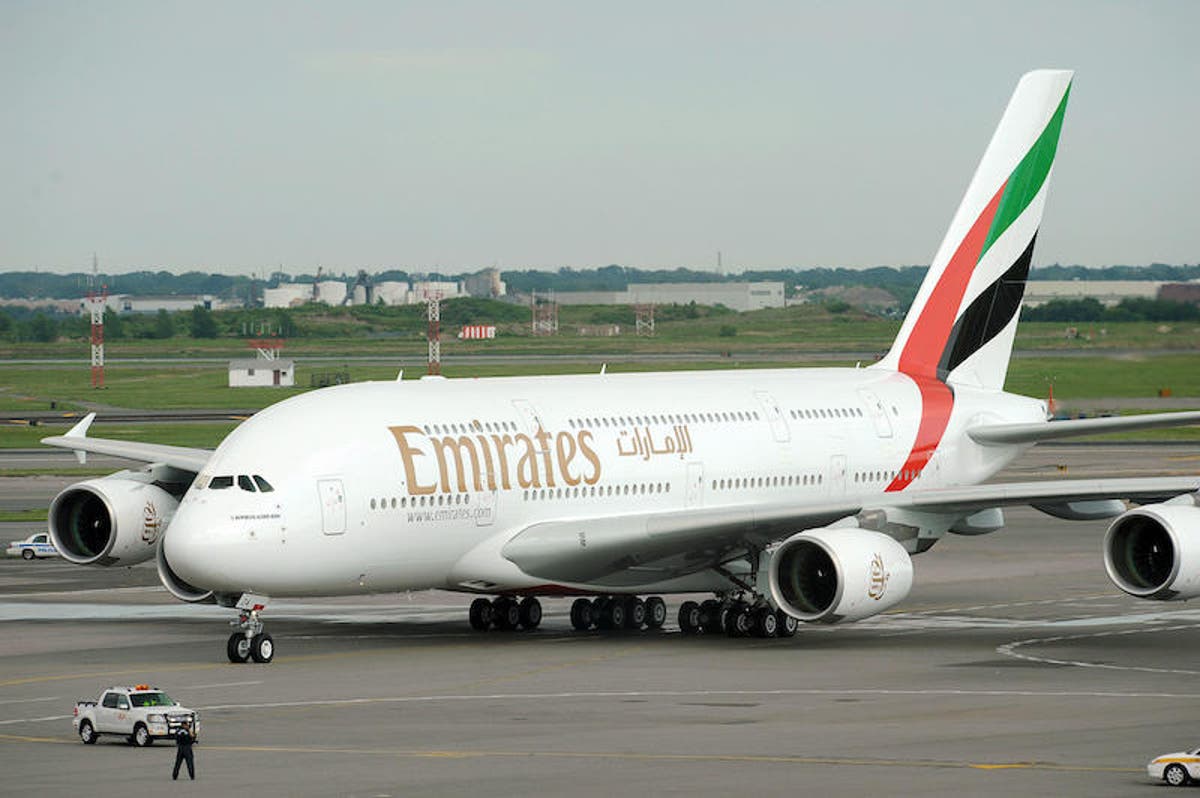
Updated: We’ll resume Lagos-Dubai flights on October 1, says Emirates
Emirates Airlines on Thursday announced that its flight operations to Nigeria would resume on October 1, 2024.
It said this in a statement, “The service will be operated using a Boeing 777-300ER. EK783 will depart Dubai at 0945hrs, arriving in Lagos at 1520hrs. The return flight EK784 will leave Lagos at 1730hrs and arrives in Dubai at 0510hrs the next day.
“Tickets can be booked now on Emirates.com or via travel agents.”
It quoted Emirates’ Deputy President and Chief Commercial Officer, Adnan Kazim, as saying the Lagos-Dubai service has traditionally been popular in Nigeria.
“We thank the Nigerian government for their partnership and support in re-establishing this route and we look forward to welcoming passengers back onboard,” Kazim said.
Minister of Aviation and Aerospace Development, Festus Keyamo, on Wednesday said the Emirates Airlines had given a definite date to resume flight operations to Nigeria and would make the announcement in a matter of days.
Emirates Airlines suspended flight operations to Nigeria in October 2022 over its inability to repatriate its $85 million revenue trapped in Nigeria.
-

 Business2 days ago
Business2 days agoDollar crashes against Naira at official market
-

 News19 hours ago
News19 hours agoUsing pre-registered SIM card may land you in jail, NCC warns
-

 metro2 days ago
metro2 days agoThree police officers sentenced to life imprisonment in Anambra
-
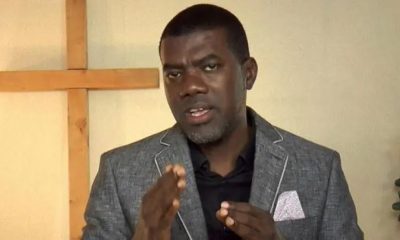
 News2 days ago
News2 days agoWike, Fubara are ego-driven, crude – Reno Omokri
-

 News1 day ago
News1 day agoUpdated: Reps condemn assault on Nasarawa female doctor by patient family
-
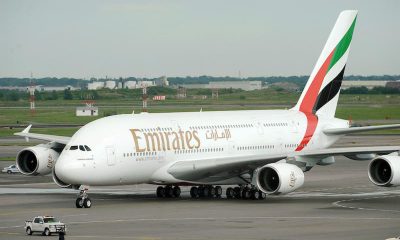
 Aviation2 days ago
Aviation2 days agoUpdated: We’ll resume Lagos-Dubai flights on October 1, says Emirates
-

 metro3 days ago
metro3 days agoNigerian who killed wife in UK bags life jail
-

 International1 day ago
International1 day agoUK says it’s developing radio frequency to blast out drones







